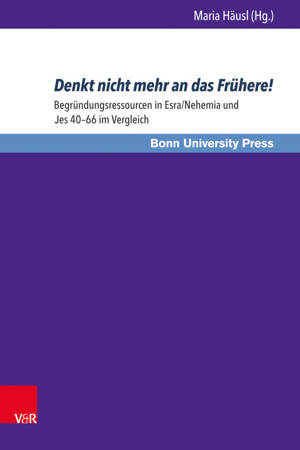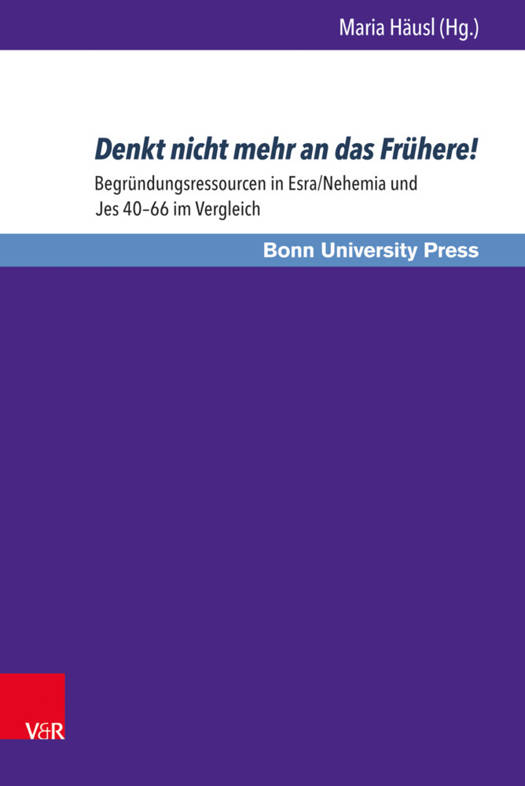
Bedankt voor het vertrouwen het afgelopen jaar! Om jou te bedanken bieden we GRATIS verzending (in België) aan op alles gedurende de hele maand januari.
- Afhalen na 1 uur in een winkel met voorraad
- In januari gratis thuislevering in België
- Ruim aanbod met 7 miljoen producten
Bedankt voor het vertrouwen het afgelopen jaar! Om jou te bedanken bieden we GRATIS verzending (in België) aan op alles gedurende de hele maand januari.
- Afhalen na 1 uur in een winkel met voorraad
- In januari gratis thuislevering in België
- Ruim aanbod met 7 miljoen producten
Zoeken
Denkt Nicht Mehr an Das Fruhere!
Begrundungsressourcen in Esra/Nehemia Und Jes 40-66 Im Vergleich
€ 82,45
+ 164 punten
Omschrijving
The books of Ezra/Nehemiah and Isaiah make up part of the discourse on the constitution of post-exilic Israel. They differ not only in the construction of the post-exilic community, but also in their justifications. If one examines the relation to God, the recourse to given traditions, the draft of a common ethos and the meaning of space and time, the two positions are to be characterised as follows: the book of Ezra/Nehemiah explicitly refers to traditions; the community is constituted on the basis of the Torah as a memory-based and learning community, and sanctification is practised internally and externally. Jesavian prophecy sees especially in God the guarantor of the future of the community, which is essentially based on justice and opens itself up to the people of the nations.
Specificaties
Betrokkenen
- Uitgeverij:
Inhoud
- Aantal bladzijden:
- 262
- Taal:
- Duits
- Reeks:
- Reeksnummer:
- nr. 184
Eigenschappen
- Productcode (EAN):
- 9783847107637
- Verschijningsdatum:
- 13/11/2017
- Uitvoering:
- Hardcover
- Formaat:
- Genaaid
- Afmetingen:
- 160 mm x 236 mm
- Gewicht:
- 498 g

Alleen bij Standaard Boekhandel
+ 164 punten op je klantenkaart van Standaard Boekhandel
Beoordelingen
We publiceren alleen reviews die voldoen aan de voorwaarden voor reviews. Bekijk onze voorwaarden voor reviews.








